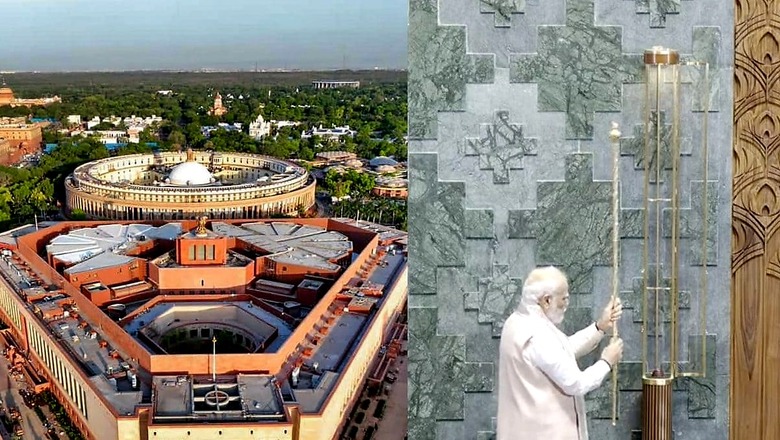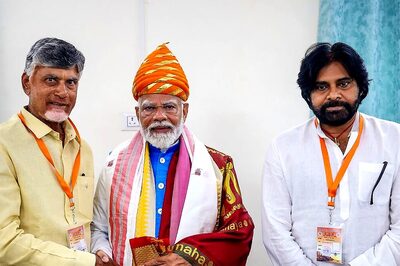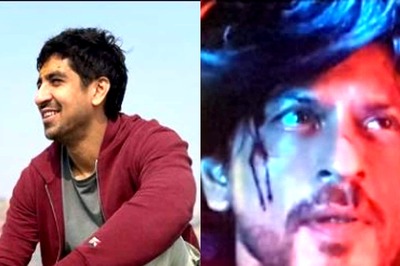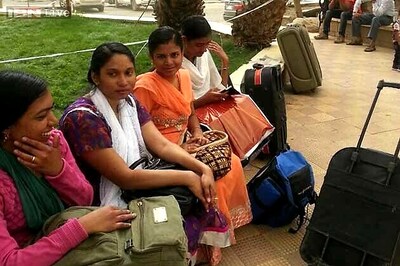
views
In a momentous occasion, Prime Minister Narendra Modi inaugurated India’s new Parliament this Sunday. A historic occasion unfolded in the expansive democracy of India. Regrettably, this witnessed a boycott by a significant number of opposition parties. The recent inauguration of the new Parliament by the Prime Minister has sparked questions from opposition political parties regarding the President’s absence from the ceremony. In a democracy, it is imperative that the opposition be granted the right to scrutinise the government and pose critical inquiries. The discussion surrounding the methods employed by the central government is therefore a topic of debate. The decision to boycott the inauguration session can be seen as a display of disrespect towards the citizens of India.
UNITY AT THE EXPENSE OF DEMOCRACY
In a show of solidarity against the ruling Bharatiya Janata Party (BJP) led by Prime Minister Narendra Modi, the opposition parties sought to display their unity. Looking ahead to 2024, the opposition parties announced plans to join forces and mount a united front against the BJP. This message signals a significant shift in strategy and a renewed determination to fight for their shared values and goals. These messages coming from the opposition camp are crucial. Messaging must not come at the expense of democracy. Parliament is not a party office of any political party, it belongs to every political party. As per the democratic process, it is the solemn duty of every Member of Parliament to serve as a representative of their respective constituencies and uphold the interests of their constituents. It was a notable absence at the recent ceremony, with approximately 156 Members of Parliament from the Lok Sabha and 104 members of the Rajya Sabha failing to attend due to a boycott by nearly 20 political parties. The recent boycott has had a significant impact on the representation of citizens in India’s democracy.
With a considerable number of Lok Sabha seats affected, as many as 156 constituencies were unable to exercise their right to representation in the temple of democracy. It is imperative that the opposition come to terms with the fact that, irrespective of their political leanings, they are ultimately accountable to the citizens whom they represent. The primary responsibility of members of parliament is to represent the interests of their constituents. However, the recent boycott by opposition MPs, purportedly aimed at demonstrating unity, has instead revealed their lack of maturity and direction.
FIGHT AGAINST BJP SHOULD NOT BECOME HATRED TOWARDS PM
As the political climate in India continues to evolve, it is becoming increasingly clear that the opposition must reassess their stance on Prime Minister Narendra Modi. The matter of countering the BJP is a subject of politics. In the context of the inauguration of Parliament, it is noteworthy that the Indian Prime Minister serves as the representative of the nation’s populace. Regardless of one’s political beliefs, the Prime Minister of India serves as a leader for all citizens.
In the current political climate, it is crucial that personal attacks and animosity not be allowed to take centrestage. The separation of politics and administration is necessary. In a political scenario where the opposition is in favour of constructing a new parliament, while the centre is not, it becomes an insurmountable challenge for the opposition to realise their objective of building the parliament. As per the constitutional mandate, it falls upon the central government to address and meet such demands. While disagreements are inevitable in any political system, it is unwise to turn administrative matters into a battle between Prime Minister Modi and the opposition. Doing so reflects poorly on the political landscape.
According to the latest NDTV-CSDS poll, a significant 43% of the populace has expressed their preference for Prime Minister Narendra Modi as their top choice for the position. For the opposition to effectively counter the BJP, it is imperative that they adopt constructive strategies rather than resorting to arbitrary ones.
FAILED OPPORTUNITY
In politics, there are a multitude of methods to convey a message. The recent Parliament inauguration ceremony saw the opposition parties miss out on a crucial chance to challenge the BJP, as they chose to boycott the event. By attending the ceremony, a more effective strategy could have been employed to corner the BJP.
One can’t help but wonder if there are more impactful ways to convey their message. Perhaps donning black dresses or tape over their mouths would have made a stronger visual statement in opposition to the government. As any seasoned observer of politics can attest, Parliament is the quintessential forum for the exchange of ideas, the weighing of options, and the contemplation of matters of great import. It is here that the art of debate is honed, where the merits of various proposals are subjected to rigorous scrutiny, and where the collective wisdom of the nation is brought to bear on the issues of the day.
In short, Parliament is the very embodiment of the democratic ideal, a place where the voices of the people are heard and their concerns are given due consideration. The opposition parties should recognise the need to reassess their political strategies.
USE OF DISCRIMINATORY ANECDOTES ARE WRONG
It is unfortunate that several opposition political parties, including the Aam Aadmi Party (AAP) led by Delhi Chief Minister Arvind Kejriwal, have resorted to citing instances such as the BJP’s refusal to invite President Droupadi Murmu to inaugurate the Parliament, owing to their prejudiced stance towards the Scheduled Tribes. Former President Ramnath Kovind, a Dalit, was also the subject of similar anecdotes.
Should the opposition believe that such anecdotes will bolster their political stance and elicit empathy from minority groups, they would be mistaken. It is imperative that we refrain from making unfounded allegations against the President of India. The recent decision by the BJP to nominate Droupadi Murmu as their candidate had raised eyebrows among the opposition. Despite her identity as a woman and member of the ST community, the opposition has shown little regard for these factors.
Yashwant Sinha, a candidate hailing from a privileged upper-caste background, was fielded by the opposition party. The campaign strategy adopted by the opposition involved targeting Murmu. The electorate is unlikely to benefit from such a brand of hypocritical politics.
OPPOSITION MUST LOOK INTO THEIR PAST
As we reflect on the current political climate, it is imperative that opposition political parties take a moment to examine their own historical actions towards former presidents, governors, and other constitutional authorities. It is a common occurrence in several opposition-ruled states that the governors are consistently disregarded.
The widely publicised clash between former West Bengal Governor, now Vice President, Jagdeep Dhankar and Chief Minister Mamata Banerjee is common knowledge. In a bold move, the West Bengal government and the ruling political party successfully passed a bill to replace the governor as chancellor of state universities with the Chief Minister. This decision marks a significant shift in the state’s governance and has raised eyebrows among political circles.
Throughout its history, the Congress has been known for its confrontational relationships with the presidents. In a controversial move, former Prime Minister Indira Gandhi went to great lengths to secure the presidency for her preferred candidate, VV Giri, over Neelam Sanjeeva Reddy. This divisive decision ultimately caused a rift within the party. Throughout history, there have been numerous instances of disrespect towards the presidents, from Jawaharlal Nehru to Sonia Gandhi.
The opposition’s decision to boycott the new Parliament’s inauguration has been met with criticism. Some argue that this action not only undermines the democratic process in India, but also provides the BJP with ammunition to further their political agenda. As the 2024 general elections loom on the horizon, the opposition needs to recognise the significance of meticulous planning in every facet of their strategy. Today, the BJP will construct a narrative against the opposition, claiming that they are anti-democracy and lack faith in the constitution.
The BJP’s political opponents are facing a daunting challenge as they struggle to maintain credibility, while espousing policies that are both misguided and contradictory. The crux of the matter regarding opposition unity lies in identifying the core issues that must be contested against the BJP.
The author is a columnist and Doctoral Research Scholar in Media and Politics. He tweets @sayantan_gh. The views expressed in this article are those of the author and do not represent the stand of this publication.




















Comments
0 comment